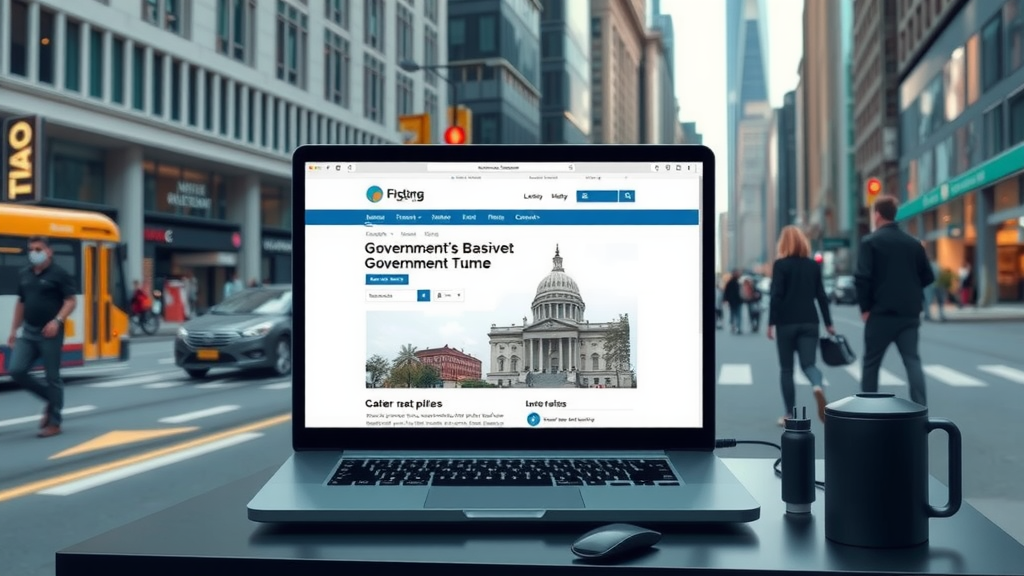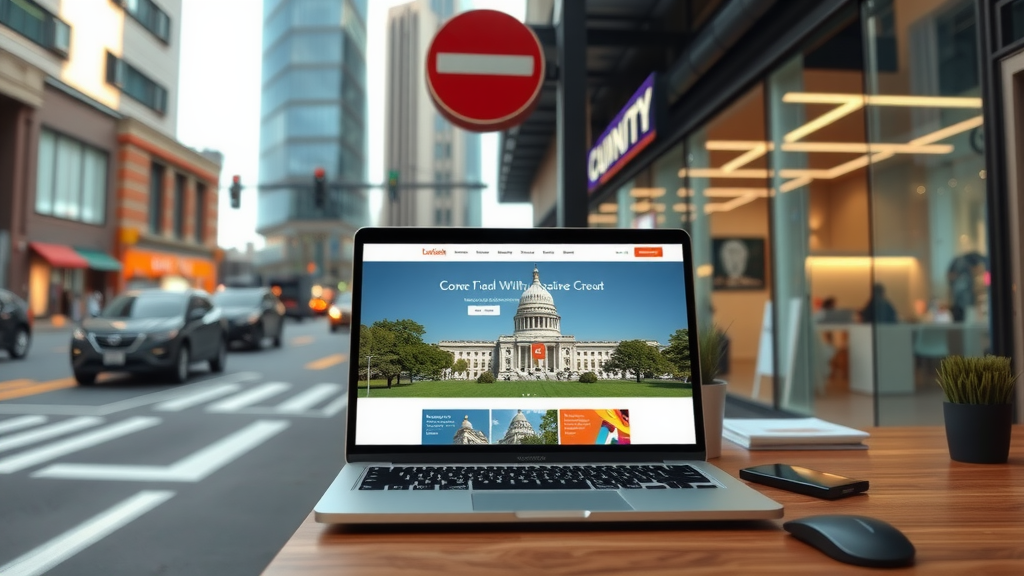
Finding a parking ticket on your windshield can be frustrating, but tackling the issue doesn’t have to be. By familiarizing yourself with the parking citation contest process, you can address the matter efficiently.
Begin your journey by utilizing online platforms to initiate a municipal ticket challenge.
This approach simplifies the task, allowing for a nonjudicial resolution and saving you the hassle of attending a courthouse.
With these tools, you can transform a potential ordeal into an organized and straightforward undertaking.
Exploring Parking Citation Contest
Tickets often come with errors, making error identification a pivotal step. Inspect the ticket for discrepancies such as wrong dates or details, and cross-reference it with the local ordinance review and existing signage.
To pinpoint citation discrepancies, visit city or county websites and explore common errors. Violation dispute resolution strategies recommend checking date stamps, license plate numbers, and confirming location accuracy.
A thorough approach can elevate your ticket adjudication success.
Steps for Effective Dispute
.
Gather evidence such as photo evidence or witness statements.
Verify ticket information against local traffic rules and regulations.
Prepare for online submission or a mailed appeal, depending on available options.
Tip: Engage in online forums for proven strategies that have worked in previous administrative resolution cases.
Enhance your penalty negotiation prospects by mastering the citation correction process and engaging effectively with parking enforcement authorities.
By adhering to a structured plan, you increase the likelihood of a favorable resolution during a citation hearing or appeal process.

Steps For Municipal Ticket Challenge
Embarking on a successful parking citation contest requires understanding the municipal ticket challenge process and following it meticulously. Error identification starts with reviewing the violation notice for discrepancies in the officer’s report.
Compile substantial evidence, including photo evidence, to bolster your claim.
The next step is an online submission to initiate the appeal process, often leading to a hearing where evidence presentation is key.
After attending the hearing, await a decision notification through mailed appeal or an electronic system. For example, a challenge based on incorrect signage can be successful if backed by clear photographs.
Nonjudicial Resolution For Violations
Finding alternative pathways for violation dispute without judicial intervention can streamline resolution.
Begin by reaching out to local authorities to initiate a nonjudicial resolution. Often, this involves penalty negotiation or mediation, possibly leading to reduced fines or other outcomes.
Engaging in Administrative Resolution
Many municipalities offer an administrative resolution as an alternative to court proceedings.
Administrative resolution involves bypassing the judicial system, saving both time and resources, as demonstrated by a motorist who successfully negotiated a reduced fine by showcasing exemplary parking behavior.
Establishing open communication with the ticketing agency aids in facilitating favorable compromises.
Utilizing such administrative procedures frequently provides flexible and efficient solutions to parking disputes, ensuring compliance with local traffic rules.
Municipal Ticket Challenge
- Reviewing the violation notice for discrepancies can identify errors in the officer’s report.
- Compiling substantial evidence, such as photo evidence, is crucial for supporting a parking citation contest.
- Online submission often initiates the appeal process, which may lead to a hearing.
- Administrative resolution offers a nonjudicial path, saving time and resources.
How To Conduct Local Ordinance Review
Thorough research into local ordinances forms the backbone of effective penalty negotiation strategies. Parking citation contest efforts benefit greatly from a local ordinance review, which begins with identifying applicable regulations.
Access municipal ticket challenge resources like government websites and local libraries for legislative updates.
Nonjudicial resolution approaches also involve consulting with municipal authorities and studying past case studies to gather insights.
By understanding these elements, individuals can enhance their ability to dispute parking tickets online and better prepare for a traffic appeal.
This knowledge allows for a smoother transition to penalty negotiations, where insights from the local ordinance review can inform discussions and promote favorable outcomes.
Effective Penalty Negotiation Tactics
Successfully engaging in penalty negotiation begins with robust evidence compilation. Parking bureau appeal strategies require meticulous evidence compilation that includes documentation, photo evidence, and witness statements to aid in a violation dispute.
A practical approach often entails understanding local traffic rules and demonstrating a history of compliance to strengthen your argument during a citation correction process.
Practical Negotiation Examples
A citation reduction can be achieved through methods like offering installment payments or mediation requests. One can petition for a penalty reduction by presenting a compliance review and emphasizing positive behavior.
This method of administrative procedure often leads to successful outcomes in the citation negotiation process, reducing the need for court appearances.
Harnessing insights from local ordinance reviews can significantly enhance negotiation tactics.
Applying these strategies not only aids in the violation examination but also streamlines the appeal process, maximizing the probability of achieving a favorable resolution.
Local Ordinance Review and Penalty Negotiation
- Thorough research into local ordinances aids in effective penalty negotiation strategies.
- Accessing municipal ticket challenge resources is crucial for legislative updates.
- Robust evidence compilation, including documentation and photo evidence, strengthens violation disputes.
- Offering installment payments or mediation requests can lead to citation reduction.
Compiling Evidence For Dispute
Resolving a parking citation contest relies heavily on the strategic evidence compilation. Acquiring the right types of documentation is pivotal for anyone engaged in a municipal ticket challenge.
Key evidence to consider includes:.
- Photographs of the parking area, which can highlight misleading signage or environmental conditions
- Receipts and permits that offer a contradiction to the citation details
- Witness statements from individuals who can verify your claims
An effective violation dispute may often lean on compelling photo evidence, such as images of faded or obscured parking signs, which can powerfully support arguments regarding unclear local traffic rules. A meticulous compilation of evidence enhances the credibility of your case, thereby increasing your chances of a successful resolution.
What Is Ticket Adjudication Process
A ticket adjudication process serves as a structured approach within any municipal ticket challenge, aiming for an impartial resolution. This process typically unfolds in several key steps:
Steps for Adjudication
- Submission of evidence through an online platform or by mail
- Evaluation by adjudicators, who provide an unbiased ticket review
The Role of Adjudicators
Adjudicators are instrumental in the administrative resolution. Their task is to fairly assess the submitted evidence, applying their understanding of traffic laws to deliver an impartial decision. Proper preparation is crucial in this violation process.
Preparation Tips
A useful tip for the appeal process is to organize all documentation meticulously, with each piece clearly labeled. Such thorough preparation plays a significant role in enhancing your chances of a positive outcome during the administrative procedure.
Key Considerations for Parking Citation Disputes
- Photographic evidence can be crucial in highlighting issues like obscured signage or unclear parking lines.
- Having receipts and permits readily available can directly contradict citation claims.
- Witness statements provide third-party verification to strengthen your case.
- Organizing and labeling all documentation meticulously enhances the credibility of your appeal.
Navigating Administrative Resolution Steps
The administrative resolution process offers a comprehensive approach to resolving parking violations without the need for court involvement. Parking citation contest begins when individuals conduct a local ordinance review to confirm citation details, emphasizing evidence compilation for accuracy.
Subsequently, appellants can initiate a nonjudicial resolution by submitting an appeal online or through mail, effectively documenting their penalty negotiation and clearly stating their violation dispute.
Key Steps in the Administrative Process
The ticket adjudication process progresses with an administrative hearing, where individuals present evidence including photo evidence and witness statements.
This step is crucial for substantiating compliance review.
A notable example is a case where a driver presented evidence presentation, proving parking compliance, leading to administrative resolution. This illustrates the system’s capability to efficiently handle violation examination procedures and quickly resolve issues.
Common Error Identification In Tickets
Often, errors in citations contribute significantly to the outcome of a municipal ticket challenge.
Frequent error identification includes discrepancies like incorrect license plate numbers, which can impact a fine contest. Such clerical errors necessitate diligent local traffic rules verification by recipients.
Another common flaw is wrong location details, leading to disputes over the citation’s validity.
Double-Checking Details
To prevent errors, individuals should verify all details, such as date and time.
Utilizing online submission platforms and mobile apps helps cross-reference records, minimizing erroneous citation correction process issues and supporting regulation compliance.
This proactive approach ensures that the challenge process is accurate and less prone to mistakes.
Tip: Always ensure submissions meet submission deadlines and adhere to dismissal criteria to avoid unnecessary penalty disputes.
| Administrative Resolution Process | Common Errors in Tickets |
|---|---|
| Local ordinance review for citation details | Incorrect license plate numbers |
| Nonjudicial resolution through appeal submission | Wrong location details |
| Evidence presentation in administrative hearing | Verification of date and time |
Steps To File A Small Claims Case For A Damaged Phone Simplified